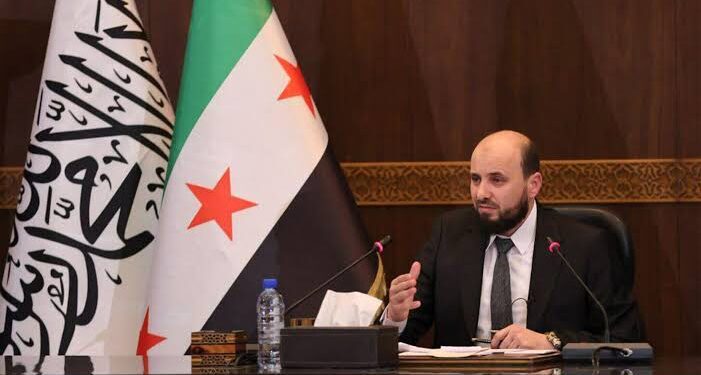Syria’s newly appointed transitional prime minister, Mohammed al-Bashir, has made a bold appeal to millions of Syrian refugees scattered around the globe. Speaking to Italy’s *Corriere della Sera* daily, he assured exiled Syrians that the nation is ready to welcome them home, declaring, “Syria is now a free country that has earned its pride and dignity. Come back.” Al-Bashir promised to safeguard the rights of all citizens, irrespective of their sect or community, as the nation strives to rebuild after more than a decade of devastating war.
Prioritizing Stability and Services
Al-Bashir emphasized the importance of stability in restoring normalcy in Syria. He stated that his administration is collaborating with officials from the ousted Bashar al-Assad regime to reset public services and institutions. His immediate goals include restoring essential services like electricity, water, healthcare, and education, which remain in disarray after years of conflict.
The transitional government faces the monumental task of rebuilding the country’s infrastructure and addressing the trauma of its war-weary population. “Syrians need stability and calm,” al-Bashir remarked, pledging a focused approach to achieving these priorities.
A New Era in Syrian Governance?
The transition period has also seen Syrian opposition groups taking significant steps toward consolidating control. Fighters from opposition factions have claimed control over the northeastern city of Deir Az Zor, previously held by Kurdish-led forces. This development signifies shifting dynamics in a nation that has long been fragmented by territorial and ideological battles.
Ahmed al-Sharaa, known as Abu Mohammed al-Julani and leader of the Hayat Tahrir al-Sham coalition, also weighed in, calling for unity and resilience. “The Syrian people are exhausted,” he stated, pledging to rebuild the nation on stronger foundations.
Military Challenges Persist
While domestic and opposition-led governance shifts indicate progress, Syria remains embroiled in military tensions. In the past 48 hours alone, Israel’s military claimed responsibility for 480 airstrikes targeting Syrian naval vessels, anti-aircraft batteries, and weapons production sites in major cities. The ongoing strikes underscore the persistent external threats Syria faces, even as it seeks internal stabilization.
Life Returns to Damascus
Despite these challenges, some semblance of normalcy is returning to the Syrian capital. Banks and shops have reopened in Damascus, signaling cautious optimism among residents. The transitional government is working to instill confidence among citizens and revitalize local economies as they recover from years of war-induced stagnation.
Closing Notorious Prisons
In another notable development, Syria’s opposition leadership has vowed to close the nation’s infamous prisons. These facilities, associated with systematic torture and human rights abuses during Assad’s rule, stand as grim reminders of the country’s tumultuous past. The move is expected to send a strong signal to Syrians and the international community about the government’s commitment to human rights reform.
Rebuilding Trust and Unity
Al-Bashir’s call to refugees reflects a broader effort to rebuild not just Syria’s physical infrastructure but also its fractured society. By prioritizing inclusivity and the restoration of public services, the transitional government hopes to lay the groundwork for a united Syria. However, significant challenges remain, from addressing lingering military conflicts to ensuring justice for wartime atrocities.
For Syrians at home and abroad, the future holds a mixture of hope and uncertainty as they navigate a post-Assad landscape. Whether al-Bashir’s appeal will inspire mass returns or remain symbolic depends largely on the government’s ability to deliver on its promises in the months ahead.
Related Stories:
Mohammed al-Bashir Appointed as Caretaker Prime Minister in Transitional Syrian Government
Syrian Rebel Leader, Al-Julani Declares “New History for the Region” while giving Victory Speech
Germany Pauses Asylum Applications for Syrians After al-Assad’s Fall
















